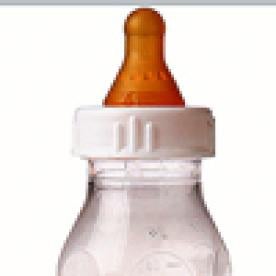CDC issues Cronobacter warning for powdered milk and infant formula products.
-
Cronobacter (formerly known as Enterobacter sakazakii) is a bacterium that occurs naturally in the environment and that can survive in dry foods, such as powdered infant formula, powdered milk, herbal teas, and starches. Although Cronobacter-related illness is rare, it can prove fatal to infants.
-
The Centers for Disease Control (CDC) recently issued a new warning to address Cronobacter contamination and steps that consumers can take to protect infants, including instructions to promote the safe handling, preparation, and storage of infant formula.
-
Although FDA’s current good manufacturing practice (GMP) requirements for infant formula include a limit for Cronobacter (neg/10 g based on 30 samples), infant formula manufacturers report that it is not possible to ensure zero contamination risk using current methods. Also, powdered infant formula may become contaminated after containers are opened. For these reasons, and because Cronobacter poses a fatal risk to the infant population, the CDC seeks to leverage public awareness and education as a useful preventive approach.



 i
i


